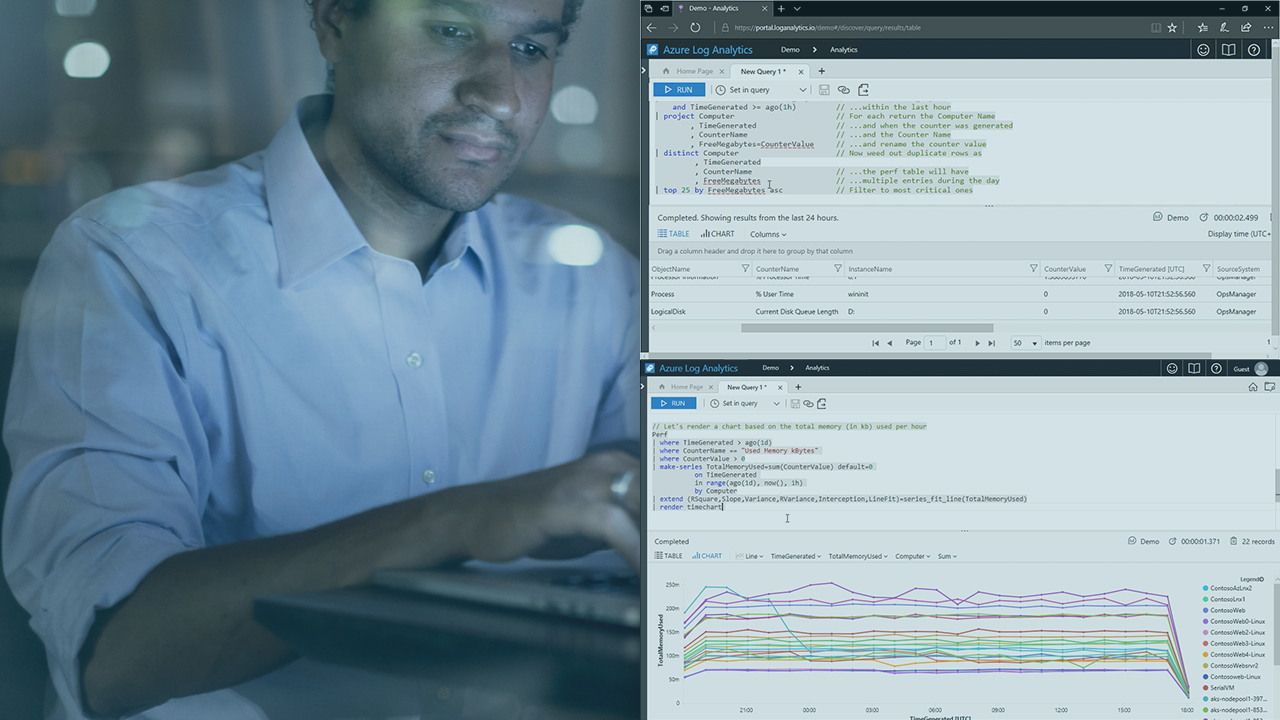- Course
Kusto Query Language (KQL) from Scratch
KQL, the Kusto Query Language, is used to query Azure's services. This course will teach you the basic syntax of KQL, then cover advanced topics such as machine learning and time series analysis, as well as exporting your data to various platforms.

- Course
Kusto Query Language (KQL) from Scratch
KQL, the Kusto Query Language, is used to query Azure's services. This course will teach you the basic syntax of KQL, then cover advanced topics such as machine learning and time series analysis, as well as exporting your data to various platforms.
Get started today
Access this course and other top-rated tech content with one of our business plans.
Try this course for free
Access this course and other top-rated tech content with one of our individual plans.
This course is included in the libraries shown below:
- Data
What you'll learn
Increasingly, Azure is becoming the infrastructure backbone for many corporations. It is imperative then, that you have the ability to query Azure into gain insights to the Azure services your company is using. In this course, Kusto Query Language (KQL) from Scratch, you will learn foundational knowledge to query a variety of Azure services. First, you will learn the basics of KQL, the Kusto Query Language. Next, you will progress to advanced KQL abilities such as machine learning and time series analysis. Finally, you will explore how to export the results of your KQL queries to CSV files and PowerBI. When you're finished with this course, you will have the skills and knowledge of the Kusto Query Language needed to gain valuable insights into your Azure services.

